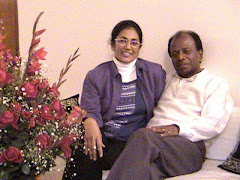Siegel’s statements are made with reference to the American education system. How is it in the developing countries? The author stated (Sedere 2000)that there are three major issues in the developing countries: the lack of external efficiency, increasing social disparities and the internal inefficiencies of the existing system. In addition to the new economic order, the information age and technological advancement are taking root in the new world order and spreading at an unprecedented speed influencing all spheres of life. With this advancement, there are new demands on the emerging jobs in the employment market. Many of the present day adults employed in the public sector are ill-equipped and unprepared to face these new demands to benefit from the new economic order. They expect that at least their children will be prepared to take up the new challenges.
Since year 2000 there are many changes and new trends are witnessed. The speed of change and technological advancement shows new momentum. Besides these world has faced many crisis. The post 9/11 global threat of terrorism and issue of insecurity has changed the global perspectives in the world order (Sedere 2005). The global economic order is faced with a new challenge of free movements due to insecurity issues. Besides these the alarming issue of ‘Global
Warming’ is receiving its due attention globally. The year 2008 brought up another serious issue for every ones life, the issue of energy crisis. The changing perspectives of the first decade of the millennium are significant to all and more so to the developing countries (Sedere 2008).
Sedere M.U. (2008),” Delineation of An Educational Policy Framework For the Developing Nations in Meeting the Emerging Global Challenges by Year 2050, (ERIC: ED500041),
There is a growing threat that the next generation of children in the developing countries very well could be isolated because they will seriously lack the scientific and technical skills that are much required in the near future or in the emerging times to successfully address these emerging issues and the challenges. Issues and challenges are much known. Also there are significant and noteworthy developments in scientific research and in technological advancements to tackle these issues and manage the threats for the wellbeing of the people. These are much needed for every one for their survival. Without these children in the developing countries, particularly in the vulnerable communities in the developing countries are very likely to be seriously affected. The end result of the negligence could be that they could end up as a sub-standard human being in the emerging new world. e significant to all and more so to the developing countries (Sedere 2008)
Sedere M. U. (2005), “Security-Based Approach to Development”, Universal Publishers,
Sedere M.U. (2008),” Delineation of An Educational Policy Framework For the Developing Nations in Meeting the Emerging Global Challenges by Year 2050, (ERIC: ED500041),
Sedere m. U. (2000) “Globalization and Low Income Economies-Reforming Education: The Crisis of Vision”, Universal Publishers,
Martin A. Siegel ▪ The Future of Education; ‘http://wisdomtools.com/documents/Future_of_Education-handout.pdf






No comments:
Post a Comment